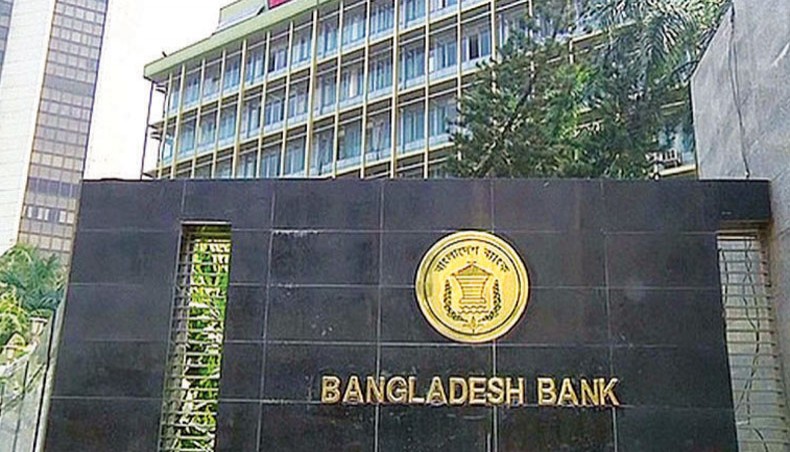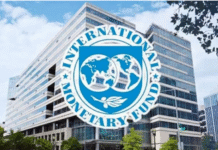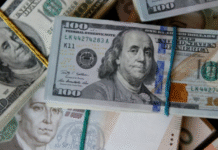
The Bangladesh Bank has taken a step by printing money to provide loans to five crisis-hit Shariah-based banks, which are all controlled by Chattogram-based S Alam Group.
Despite having no money in their current accounts, these banks are still conducting transactions, surviving only with the crucial support or lifeline provided by the central bank, financial experts said.
According to Bangladesh Bank data, these five banks collectively had a negative balance of nearly Tk 14,000 crore in their current accounts on January 18, which the central bank provided to keep them afloat.
As of January 18, the negative balance in the current account of First Security Islami Bank was Tk 7,400 crore, Islami Bank Bangladesh Tk 3,500 crore, Social Islami Bank Tk 1,900 crore, Union Bank Tk 1,100 crore, and Global Islami Bank Tk 70 crore.
Despite struggling with a serious liquidity crisis, these banks didn’t refrain from sanctioning loans to clients, BB officials said.
Central banks create new money when they lend to commercial banks, a process often referred to as ‘printing money’ in simpler terms. This action influences the money supply and the overall economy, financial experts and BB officials said.
They expressed concerns about its potential impact on the broader economy and financial markets.
Ahsan H Mansur, executive director of the Policy Research Institute of Bangladesh, criticised the central bank’s practice of providing loans, effectively printing money, to these banks facing continuous deficits in their current accounts, with these loans being backed solely by promissory notes.
Promissory notes are written and signed promises to repay loans without any security.
He pointed out that while the central bank restricts the government from borrowing to avoid inflationary pressure, it is contradictory to provide financial support to these struggling banks, disregarding potential repercussions.
Mansur questioned the rationale behind the central bank’s continuous monetary support for these banks, highlighting the potential adverse impact on the financial market and the BB’s international reputation.
He suggested that the central bank should cease all financial transactions with these banks, overhaul their boards, and remove officials directly involved in irregularities.
A bank’s current account with the central bank holds funds for Cash Reserve Ratio and Statutory Liquidity Ratio requirements, as well as additional funds for clearing and settlement between banks, BB officials said.
In the clearing process, cheques are exchanged and processed through the central bank’s clearinghouse, with funds transferred electronically between banks.
If a bank has insufficient funds, the central bank cannot process the cheque.
BB spokesperson and executive director Md Mezbaul Haque told New Age on Monday that lending to the five banks, which have negative current account balances, is part of regular activities and part of the liquidity management of the central bank.
Asked about the contradiction between halting the supply of printed money to the government while continuously providing such support to the five banks, he emphasised that the BB’s actions were motivated by the ‘best interests’ of the country’s economy and the banking sector.
Asked, BB governor Abdur Rouf Talukder said in a press conference on January 17 that the central bank provided the money under a special arrangement called ‘lender of the last resort.’
He also said that lending followed rules and regulations.
With a surplus money supply and inflation, it undermines the interests of the citizens and raises serious concerns about the integrity of the central bank, financial experts opined.
Due to significant loan irregularities, mismanagement, and absent governance, these banks fell into a severe cash crisis as the confidence of the depositors eroded significantly, they said.
Islami Bank Bangladesh, SIBL, and FSIBL were mired in controversy after it was revealed in November 2022 that the banks had lent about Tk 9,500 crore to 11 shell companies.
By bailing out the crisis-hit banks since December 2022 without addressing the root causes of their financial distress, the central bank is jeopardising the overall financial stability of the country, experts said.
The injection of funds may only serve as a temporary fix, creating a false sense of stability, they said.
On January 11, the negative balance of FSIBL was Tk 7,099 crore, IBBL Tk 3,647 crore, SIBL Tk 1,460 crore, UBL Tk 1,048 crore, and GIBL Tk 38 crore, according to Bangladesh Bank data.
The amount changes every day due to day-to-day transactions.
In a letter on November 28, the central bank informed these five banks that they had found their
current account outstanding to be negative for a long time, saying that it was not rational.
‘Despite notifying the issue over and over again, you didn’t take any mentionable steps,’ the central bank letter said.
Zafar Alam, managing director and CEO of Social Islami Bank, claimed to New Age that the bank’s negative balance in its current account had been gradually improving, thanks to various measures implemented by the bank and the central bank as well.
He attributed the creation of this situation to ‘rumours and propaganda’ about the bank that had lessened depositors’ confidence to some extent.
Highlighting the bank’s standing in the banking sector, Zafar stated that the central bank, in its role as guardian, has provided support in line with ‘established rules and regulations.’
Zafar hoped that the negative position in the current account would soon be rectified.
A BB official said they usually lend to commercial banks against various assets or securities.
But these five banks don’t have any securities like Treasury bills and bonds for collateral, leaving the Bangladesh Bank with no lending instruments, they said.
The Bangladesh Bank extended the latest loans solely based on a promissory note as there were no other means left, they admitted.
For Islamic banks, the minimum CRR requirement is 4 per cent and the SLR requirement is 5.5 per cent of deposits, as per the central bank rules.
A bank must face a 3.5 per cent fine on CRR shortfalls every day and a 5 per fine every two weeks, while a special repo rate (currently 9.5 per cent) fine is applicable for SLR shortfalls.
The fines pile up every day if a bank is unable to pay the penalty.
Zahid Hussain, former lead economist of the World Bank’s Dhaka office, highlighted that five banks in Bangladesh are currently experiencing a severe liquidity crisis due to loan irregularities, a lack of corporate governance, and a decline in depositors’ confidence.
He expressed concern that bailing out these banks would hinder Bangladesh Bank’s (BB) efforts to reform their behaviour, as non-compliant banks would likely continue their unethical practices.
Hussain wondered why the central bank had not taken disciplinary action against these banks to prevent further anomalies.
He suggested that the Bangladesh Bank should promptly implement its new circular, the ‘Prompt Corrective Action (PCA) Framework,’ which would restrict banks’ business activities based on their performance ranking.
On December 26, 2023, BB, through a special arrangement, provided loans totaling about Tk 22,000 crore to seven crisis-hit commercial banks for a couple of days, including the five Shariah-based banks.
The loans were provided to clean up CRR and SLR shortfalls and show a rosy picture on their year-end balance sheets. After repaying the amounts, these banks fell into a severe crisis again, according to BB officials.
The excess liquidity of the five banks was Tk 3,491 crore negative in September 2023, which also displayed the sorry state of these banks, the officials pointed out.
Amid dire need of funds in December 2022, the five banks took a total of 14,790 crore, whereas Islami Bank alone took Tk 8,000 crore under the BB special arrangement called ‘lender of the last resort’ at 8.75 per cent interest, which was equivalent to the special repo rate. As a Shariah-based lender, it is not supposed to borrow by offering interest.
New Age









